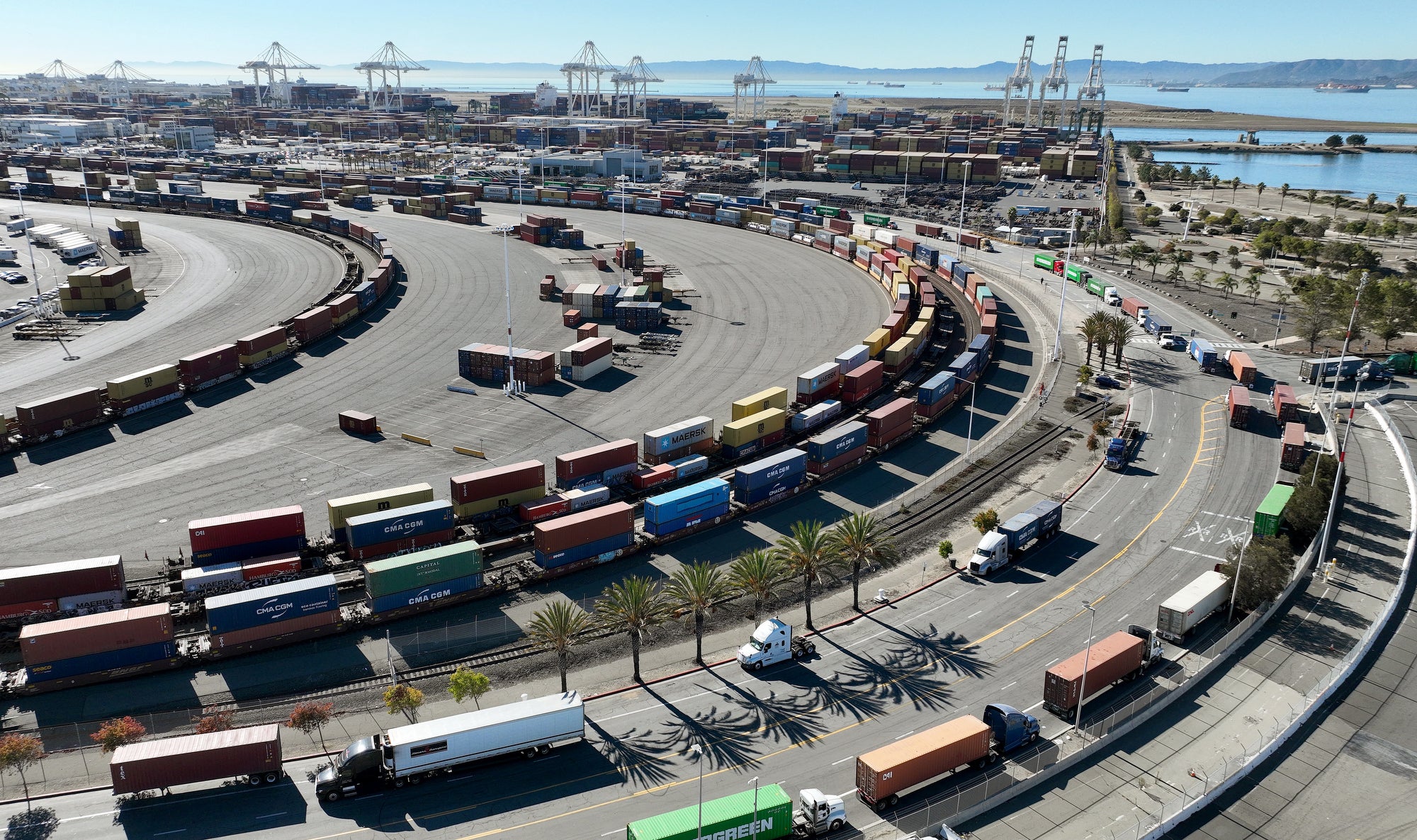A Common-sense Guide to Port Management: More people-centered policies, less pandering
The California State Assembly Select Committee on Ports and Goods Movement misses the mark by convening hearings on the impact of freight while focusing almost exclusively on industry needs.
Port pollution remains a significant health risk for many Californians. People living in frontline communities breathe unsafe air and face elevated risks of heart and lung disease, cancer, and premature death. At the Port of Oakland, for example, emissions from freight activity are among the top contributors to cancer risks in West Oakland, the neighborhood adjacent to the port. West Oakland residents are also 99% more likely to have asthma than other Californians, and residential blocks nearest to the port show the highest rates of air pollution-associated heart disease. Similarly, in southern California, the life expectancy in near-port neighborhoods like West Long Beach is eight years shorter than the Los Angeles County average.
Yet, the California State Assembly Select Committee for Ports and Goods Movement continues to ignore the public health and climate impacts of the port and freight industry. The Select Committee, led by Assemblymember Mike Gipson, aims to conduct hearings at all ports across California to understand the state of the industry. At the conclusion of this port tour, the Select Committee also plans to develop a white paper that could inform legislation. But at each of the three hearings convened so far, the life-threatening impacts of California ports and their associated freight activity have largely been ignored by committee leadership. In fact, despite repeated criticisms from community and environmental advocates, the Select Committee has almost exclusively invited industry representatives, regulators, and regional port staff to speak as panelists at its hearings in Sacramento, San Pedro, and San Francisco. Those living in communities most impacted by the ports were notably not on the invite list.
Disinterest in public engagement
Failing to bring community perspectives into the conversation signals to constituents in frontline communities that the legislature is not concerned with their health and safety. The Select Committee’s lack of public process glaringly demonstrates this apathy. The only space afforded to community, public health, environmental justice, and climate concerns at the Select Committee’s hearings has been during the public comment period at the end of the hearing. But are 2 minutes of public comment likely to motivate legislators to craft the robust public policies necessary to protect the breathing public adequately? Probably not. These hearings seem to exclusively cater to industry’s needs over all else. It’s also worth noting that while the Select Committee has joined port staff on harbor tours of the San Pedro Bay and Oakland ports, they neglect visiting neighboring impacted communities. Without also giving community health, environmental justice, and climate advocates the same time and attention as industry, the legislature risks setting policy on California port and freight sector with blinders on.
Misinformation and the undermining of public health regulations
The lack of community and environmental representation at these hearings has also allowed the industry and its supporters to build an inaccurate narrative around regulations aiming to clean up port operations and improve public health. Efforts like the California Air Resources Board’s (CARB) newly adopted Advanced Clean Fleets (ACF) rule and the South Coast Air Quality Management District’s Marine Port Indirect Source Rule (ISR) have the potential to reduce overall emissions from port facilities and transition port operations to zero-emissions. Rather than entertain industry’s baseless criticisms of these regulations, the Select Committee should engage in an honest discussion about the cost of not doing more to regulate port pollution. Industry cannot continue putting communities at risk under the guise of “good business,” particularly when these zero-emissions regulations offer a substantial amount of savings. For example, the ACF rule, will yield $48 billion in operational savings alone. If healthcare savings are also considered, the benefits of the ACF rule and ISR vastly outweigh any costs.
An opportunity for improvement
The Select Committee on Ports and Goods Movement, and the legislature at large, can do right by frontline communities that for too long have paid the price for the port and freight industry’s true cost of operations. California ports are receiving unprecedented levels of state public investment money that will help modernize operations and should be used to eliminate air pollution. When the state determines which projects to fund, it must consider whether a proponent’s modernization efforts will improve air quality or further harm communities by increasing harmful air pollution and particulate matter. Additionally, the legislature must ensure that State funding for Port modernization will incorporate community benefits that meaningfully improve conditions and not just minimize harm to port-side communities. Funding for these benefits could include community solar, building electrification, or other similar initiatives.
Finally, to the extent public funds are being used to modernize ports, they should not go to help entities and agencies that are doing everything in their power to thwart state and local efforts to improve conditions like the CARB rules and South Coast’s ISR. Let our state’s air quality experts do their job and develop comprehensive regulations that will finally tackle the issue of port-derived air pollution. It’s time for the select committee to remove the blinders for a more balanced view of what Californians need from their ports and invite an honest discussion about more ways to curb dangerous air pollution from its 12 port operations.
The California Regional Office fights for the rights of all to a healthy environment regardless of where in the state they live; we fight to protect the magnificent natural spaces and wildlife found in California; and we fight to transition California to a zero-emissions future where cars, trucks, buildings, and power plants run on clean energy, not fossil fuels.
Zoe Woodcraft
Public Affairs and Communications Officer, Earthjustice
zwoodcraft@earthjustice.org
